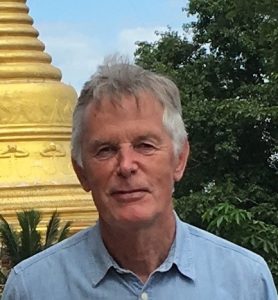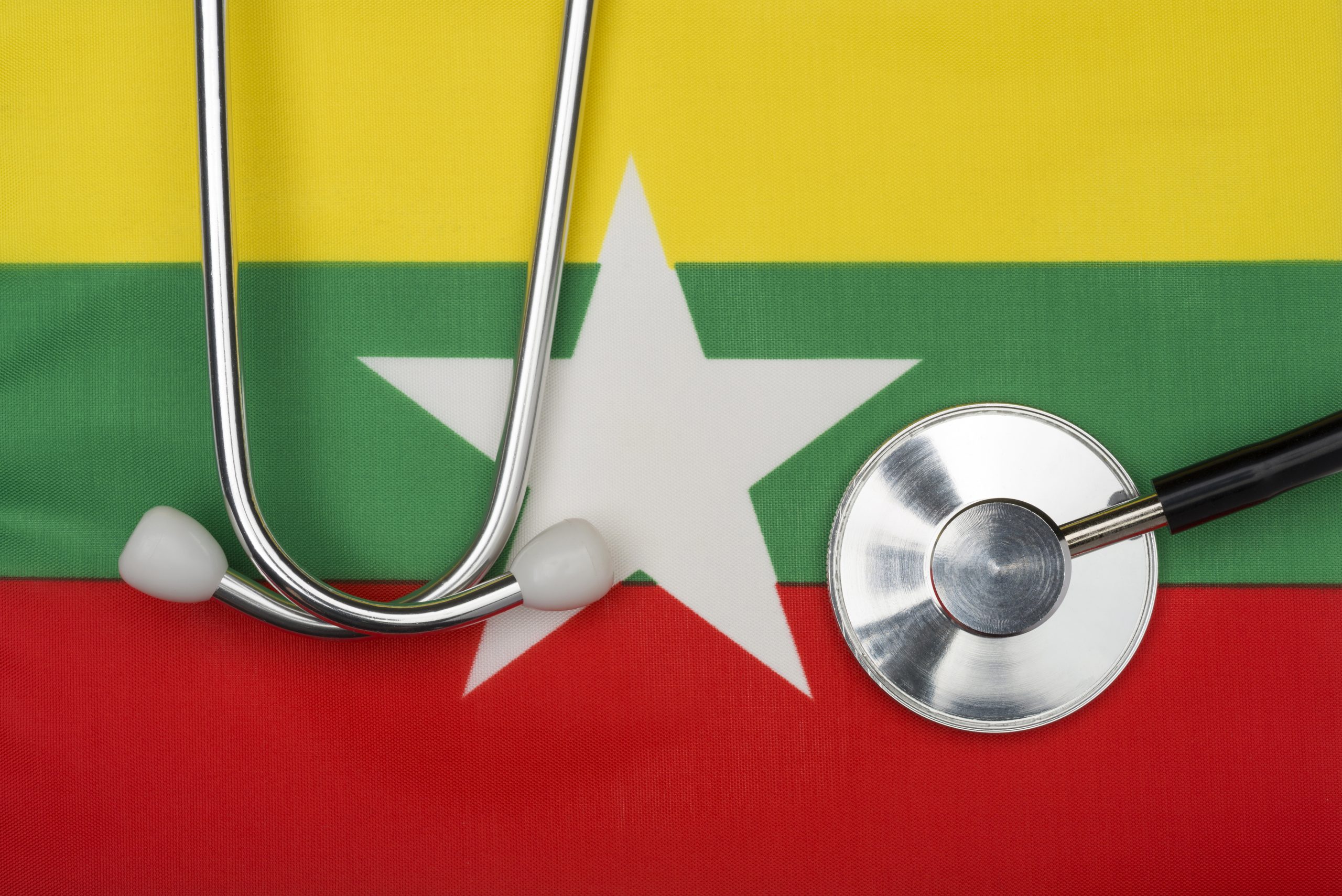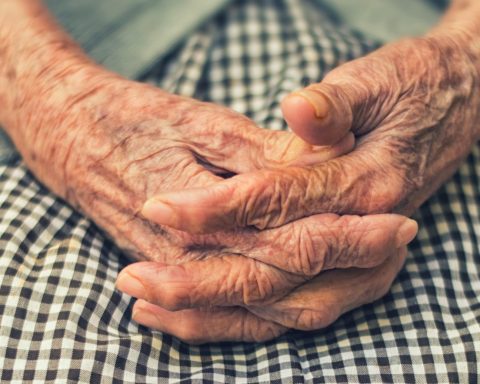 Jim Brockbank has retired from general practice. He continues in his role as a GP Appraiser and as an International RCGP Trainer for Myanmar.
Jim Brockbank has retired from general practice. He continues in his role as a GP Appraiser and as an International RCGP Trainer for Myanmar.
Myanmar should not be forgotten in the conversation around the ongoing failure to protect hospitals and health workers in conflict zones. The tragic milestone of more than 1000 attacks on healthcare since the military coup of 1st February 2021 has now been reached.1 In their daily lives, health workers in Myanmar face violence, arrest, and death; they ask: ‘We are not politicians, not soldiers, not fighter pilots, we are nurses and doctors, why can’t the world protect us?’ 2
‘… more than 1000 attacks on healthcare since the military coup … health workers in Myanmar face violence, arrest, and death …’
Access to healthcare is a huge problem — violence, movement restriction, martial law, and internal displacement are all contributory factors. Medication for many is prohibitively expensive, there are challenges in obtaining medication especially for TB, HIV, and malaria, and cases are rising. Providing care to pregnant women and the elderly is especially challenging, only 30% of children are receiving routine immunisations, and COVID immunisation is at a standstill.
The impact of COVID has been previously discussed on BJGPLife. 3 The UN Special Rapporteur on Human Rights in Myanmar reports that displacement and human suffering continue on a massive scale and have been exacerbated by the landfall of Cyclone Mocha in May 2023.4
Myanmar GPs are themselves ‘living in the conflict’. Imagine trying to provide healthcare in these circumstances, let alone having the energy and commitment to pursue continuing medical education (CME). Despite the security risks, our colleagues in Myanmar display the best of humanity in providing healthcare to their communities.
Myanmar GPs are themselves ‘living in the conflict’. Imagine trying to provide healthcare in these circumstances, let alone having the energy and commitment to pursue continuing medical education …
Maybe we will see the caravan of hope’s wheels beginning to turn as we journey through the range of educational initiatives since the coup began.
Quality Improvement (QI) training and the development of a sustainable programme of teaching
In recognition of the pivotal role of primary care in meeting the challenges of a Universal Healthcare (UHC) system, a year long RCGP–Myanmar GP Society QI project commenced in January 2018 and was previously discussed on BJGPLife.5 The Myanmar GP Society was a subgroup of the Myanmar Medical Association and following the coup these organisations no longer exist.
The welcoming attitude of the GPs and their enthusiasm for new ideas and ways of learning was a major strength of the project, which has proved to be a launchpad for expansion of QI training despite the impact of the conflict, COVID, and Cyclone Mocha.
The aspiration is to develop a nucleus of Myanmar GPs with Quality Improvement skills who are able to provide Quality Care to patients.
… to date 120 Myanmar GPs have been trained on the QI Introductory course. The plan for 2024 is for a further 100–120 Myanmar GPs to complete the course.
QI training courses have continued remotely and to date 120 Myanmar GPs have been trained on the QI Introductory course. The plan for 2024 is for a further 100–120 Myanmar GPs to complete the course. It is hoped that QI training can be expanded to underserved localities especially in the ethnic regions.
QI training is resource intensive and over 40 Myanmar GPs have completed advanced QI training enabling them to facilitate Quality Circle meetings, and 8 Myanmar GPs have become QI Trainers able, with support from RCGP Trainers, to lead QI Courses. The plan for 2024 is for a further 24 Myanmar GPs to undertake advanced QI training.
A training of the trainers course has subsequently been developed, which includes a review of QI techniques, introduction to adult learning, how to give a good powerpoint presentation, how to run a small group, and how to give feedback.
… over 40 Myanmar GPs have completed advanced QI training, enabling them to facilitate Quality Circle meetings, and 8 Myanmar GPs have become QI Trainers able … to lead QI Courses … this is another example of sustainable learning.
Quality Circles (QCs); the road to collaborative learning
One of the desired outcomes of the original 1-year QI Project was that the GPs would continue to meet in small groups of 8–10 (Quality Circles) to learn together. This has become an established method of collaborative learning. QI trained Myanmar GPs act as facilitators and run monthly Quality Circles; this is another example of sustainable learning.
Myanmar General Practitioner Education (MGPE)
MGPE, a separate organisation, was formed following the coup to provide education and support for GPs
MGPE, a separate organisation, was formed following the coup to provide education and support for GPs.6
The Vision: Improving access to coordinated and compassionate quality primary health services delivered by trained and competent GPs.
The Mission: Enhancing the professional development of general practitioners by creating an enabling learning culture and building a network with healthcare stakeholders to deliver standard quality care and services to individuals and communities.
MGPE initiatives include:6
- A Pilot of 6 QCs by Myanmar General Practitioner Education (MGPE) is planned and will include evidence of regular attendance at QCs, completed audits, a learning log of self-directed learning and the learning from QCs. Just to remind ourselves, Quality Assurance tells us that everything is in the right place and performing as we expect; Quality Improvement is for when we know that something needs to be better.
- MGPE plans to take the lead on recruiting GPs to QCs, provide guidance on facilitation of monthly QC meetings, and proposes that each QC will have 10–15 GPs. Additionally, work is in progress to develop a QC Network exchange to share learning and teaching across Myanmar. This is an ambitious plan and a real example of ownership of sustainable learning.
- A QI workshop by the GPME to promote interest in QI in the wider Myanmar GP community resulted in over 100 Myanmar GPs attending. The workshop was facilitated by 12 Myanmar QI trainers.
- MGPE Website development. The purpose is to provide education resources for all Myanmar GPs and it includes access to UK general practice education resources, recordings of webinars, and access to the Quality Improvement Handbook developed from the 2018 QI Project. Myanmarclinicalguidance.com is a website established by the Royal College of Paediatrics and Child Health (RCPCH) previously discussed in this journal.7 This site can be accessed via the information hub and contains clinical guidelines and medical resources selected by experts for use by doctors, nurses, and others in Myanmar. There are also useful links to guidance on referral and local services.
- A pilot project is in process that involves 21 clinics regarding integrated viral hepatitis B & C infection screening and Hepatitis B vaccination in primary care. The objectives are early detection, preventive vaccination, and promoting community awareness.
- Additional projects included: testing electronic medical records, a 3-month COVID sentinel surveillance study involving 32 clinics, and the development of a 6-month antenatal care programme for 51 poor/homeless pregnant women.
MGPE Partnership working with the RCGP
- Webinars; regular 2-weekly remote medical education webinars keep Myanmar GPs updated regarding their clinical knowledge. Eighteen RCGP webinars took place in 2023 and between 150–350 Myanmar GPs attend the webinars. The webinars are organised by the RCGP trainers and the identification of learning needs are undertaken by the Myanmar GPs. Topics have included common ENT problems, diabetes, care of the elderly, COVID diagnosis and management, sepsis management, and the management of atrial fibrillation.
- Organisational development of MGPE is supported through regular management webinars organised by RCGP Trainers; 18–20 Myanmar GPs on the executive of MGPE have had 6 sessions of organisational development training. Topics included change management, team working, negotiation skills, governance and ethics.
Myanmar GP Learning Needs Survey
This was undertaken by an Improving Global Health (IGH) Fellow to understand GPs learning needs and how they learn. The IGH Fellows are recruited by the NHS to work with overseas partners for 6 months, as part of an NHS Leadership Development Programme. The invaluable skills the IGH Fellows learn, working in collaboration with our Myanmar GP colleagues under such difficult conditions, results in the development of leadership expertise, which they bring back to the NHS.8
The majority of Myanmar GPs learn best from formal short courses, webinars and lectures, and are happy with English as the language used. Official CME accreditation motivates the GPs to learn. Time and internet access are the main barriers to accessing CME.
Additional examples of the contribution from IGH Fellows to GP education in Myanmar include QI around point-of-care testing devices in GP clinics and the development of CME accreditation for GPs.
The UK healthcare community has responded to the call for educational support from Myanmar colleagues and the partnership between RCGP Trainers and Myanmar GPs continues to be a rich and rewarding experience.
Hopes, aspirations, and what next?
The UK healthcare community has responded to the call for educational support from Myanmar colleagues and the partnership between RCGP Trainers and Myanmar GPs continues to be a rich and rewarding experience. Through support and education, the goal to build a stronger more resilient healthcare system in Myanmar continues.
In times of conflict the need to update our knowledge and strengthen our skills as clinicians could so easily not be a priority but in Myanmar our remarkable colleagues are committed to engaging with CME and to improving health outcomes for their communities.
Can we be hopeful that Universal Healthcare might at some stage re-emerge from the ashes of the conflict? The spirit and resilience of our colleagues in Myanmar suggests we can.
Aspirations for 2024 include:
- Expansion of a sustainable programme of Quality Improvement training.
- Promotion of collaborative learning through expansion and networking of Quality Circles.
- Continuing the twice monthly webinars, to enhance clinical knowledge but additionally to remind colleagues they have not been forgotten.
- Further development of the MGPE website.
- Quality Assurance pilot of 10 GP Practices regarding QI training, QC learning, including evidence of CPD.
- Mentoring of new GPs by Myanmar GP trainers, to include work-based assessment and tutorials.
- Promotion of health education through the development of pamphlets on, for example, diabetes, hypertension, Hepatitis B & C, and TB.
- Expansion of the use of electronic medical records.
- Promotion of international networking.
An ambitious aspiration of the MGPE is to attend the WONCA Asia Pacific conference in August 2024 to share their achievements despite such challenging circumstances.
Can we be hopeful that Universal Healthcare might at some stage re-emerge from the ashes of the conflict? The spirit and resilience of our colleagues in Myanmar suggests we can.
Note: For the purposes of security there are no pictures of our colleagues in Myanmar following the coup.
References
1. Insecurity Insight. https://insecurityinsight.org/wp-content/uploads/2023/11/A-Tragic-Milestone-Myanmar-Press-Release-November-2023.pdf (accessed 2 Feb 2024).
2. Wooton.M. Personal communication. (7 Dec 2022).
3. Brockbank J. The chaos of Covid in Myanmar. BJGPLife 2021. https://bjgplife.com/the-chaos-of-covid-in-myanmar (accessed 2 Feb 2024).
4. Report of the Special Rapporteur on the situation of human rights in Myanmar, Andrews TH. https://reliefweb.int/report/myanmar/report-special-rapporteur-situation-human-rights-myanmar-thomas-h-andrews-a78527-enarruzh (accessed 2 Feb 2024).
5. Brockbank J. The dream of universal healthcare in Myanmar becomes a nightmare. BJGPLife 2021.
https://bjgplife.com/2021/03/29/the-dream-of-universal-healthcare-in-myanmar-becomes-a-nightmare (accessed 2 Feb 2024).
6. Myanmar General Practitioner Education. Personal communication (6 Dec 2023).
7. Brockbank J. Project Empathy: response to the healthcare crisis in Myanmar. 2021. https://bjgplife.com/2021/05/28/project-empathy-a-response-to-the-healthcare-crisis-in-myanmar
(accessed 2 Feb 2024).
8. Kemp. I. (IGH Partnership Link Lead for Cambodia and Myanmar) Personal communication (6 Jan 2024).
Featured image: i-Stock by Getty Images







Service delivery including health care is one of the driving factors for power, politics and legitimacy, but it isnot a linear correlation.